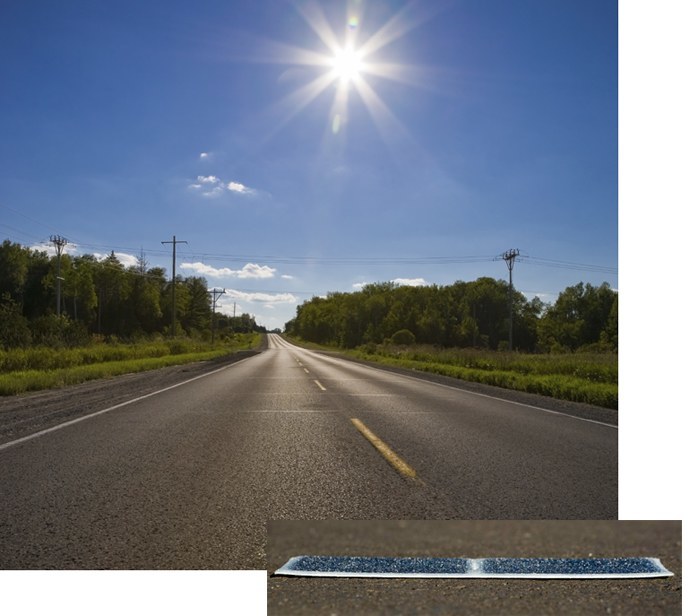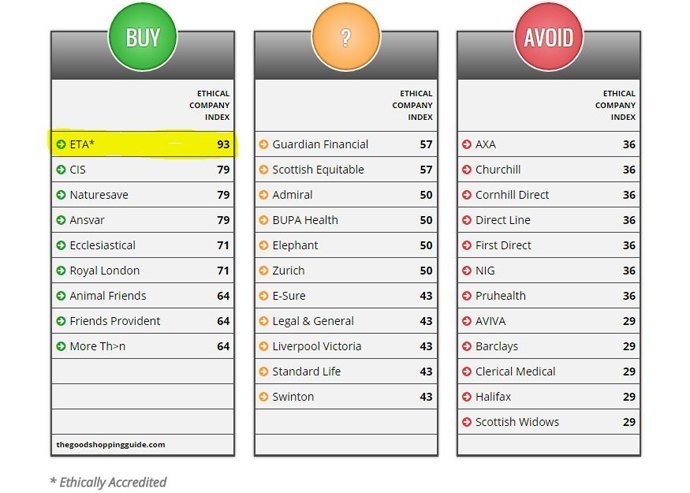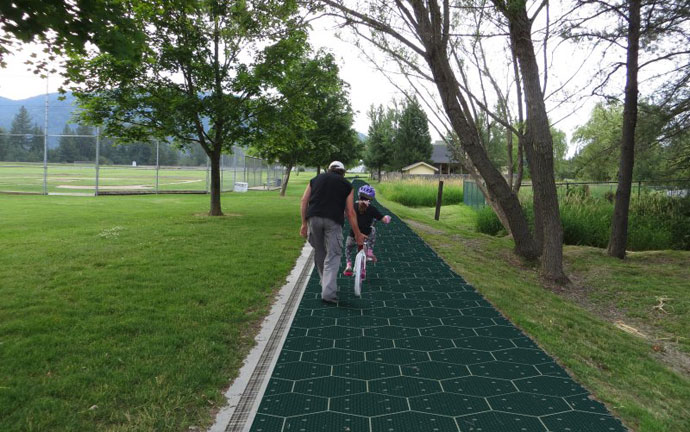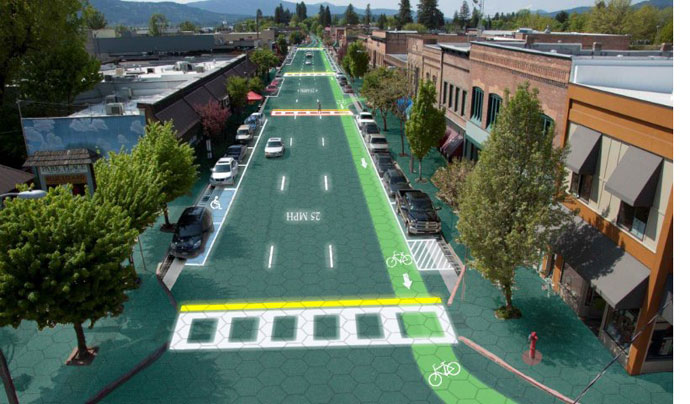
France is to install 1,000 km of solar roads over the next five years as part of its bid to supply renewable energy to 5 million people.
The Wattway photovoltaic panels are only 7 mm thick making it possible for them to be applied on top of the existing road surface without any need for rebuilding works.
A test of the technology at Grenoble, which subjected the panels to the equivalent of 20 years of traffic, showed them to be weather-proof and tough enough to survive being driven over by a snow plough.
It is estimated that 20 square metres of Wattway panels could generate enough power for a single French home, not including heating. However, critics of solar powered roads argue that roof-top panels are a more reliable, safe and cost effective means of generating electricity.
Solar roads
The French scheme is a well-funded joint enterprise involving construction company, Colas, and the National Institute of Solar Energy, but the technology is nothing if not accessible. Similar designs are emerging from small, self-financed engineers. Scott and Julie Brusaw spent eight years developing solar roads technology in their back yard before the American public donated over £1 m to the project. The Solar Roadways project is a modular solar roads paving system.
The glass panels are robust enough to withstand the pressure from an articulated lorry and designed to be installed on roads, car parks, drives, pavements, cycle lanes or playgrounds.
As well as generating electricity to go into the grid, the toughened glass panels include heating elements to prevent ice, LEDs to show road lines and signage, and a roadside cable corridor to store and treat polluted storm water and house power and data cables.
According to its designers, implementation of the Solar Roadways project on a grand scale would provide ice, snow and pothole-free illuminated roads. If there was danger ahead from a crash, the intelligent road could detect this and warn drivers to slow down.
The technology is already is use by Dutch cyclists. SolaRoad is new surface for cycle paths that converts sunlight into electricity and the first stretch, near the town of Krommenie.
Driving to France this summer?
The ETA Guide to Driving in France is a free e-book packed with information and advice for anyone planning a driving trip across the channel.
Download your free copy here.
Britain’s most ethical cycle insurance, travel insurance and breakdown cover
The ETA was established in 1990 as an ethical provider of green, reliable travel services. Twenty six years on, we continue to sell excellent cycle insurance, travel insurance and breakdown cover while putting concern for the environment at the heart of all we do. It’s the reason we’ve been voted the most ethical insurance company in Britain by the Good Shopping Guide.



edmund white
France the Dutch and the US, all making use of this technology,and here in the UK what do we do??? we cut grants for solar energy. we must be mad, it could solve so many problems on the roads & in the home
Ray Weston
The above comment about the cut to grants is a little misguided.
The amounts that were set at the start were a ridiculous waste of public money, unfortunately.
Initially, there was no upper limit to the size of installation, and many landowners with spare cash made a phenomenal investment, which they will be creaming off the rest of us for the next twenty five years!
This is not the way to go, as a few are hugely benefitting from the tax take of even the poorest in society! Let us not have green at any price!
We need to make sure that these future green subsidies have the right balance between the good and not so good, and the unintended consequences, as hinted at above, need to be eliminated.
Regards